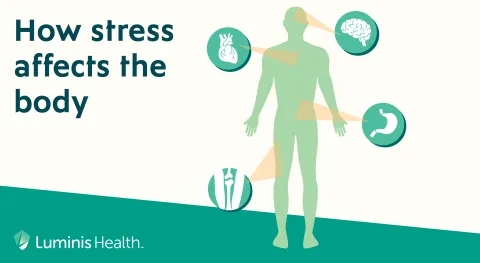
Irritable bowel syndrome (IBS) and anxiety may not seem like they’d have anything to do with each other. After all, one affects the gut while the other influences the mind. But new research has found that not only is there a connection, it’s written in our genes.
What is the relationship between IBS and anxiety?
Researchers have long known that the brain sends signals to the gut. Until recently, though, most scientists flat-out rejected the possibility that it could be a two-way street. Studies in the past decade, however, have shed new light on evidence that the communication does go both ways. And interest in the brain-gut connection is now gaining ground.
A study published in late 2021 by the journal Nature Genetics sought to identify genetic risk factors for IBS. What researchers found was proof that IBS and anxiety share certain genetic pathways. That means that the genetic changes that put someone at an increased risk for IBS also put them at an increased risk for certain mental health conditions, like depression, insomnia and anxiety.
The findings don’t just highlight the close ties between IBS and anxiety. They also set the stage for the development of new treatments.
Taking a closer look at IBS and anxiety
IBS is a common condition that affects one in 10 people worldwide. It causes symptoms such as stomach pain, bloating and bowel issues. Factors like diet, stress and behavior can increase a person’s risk. So can difficult early-life events, like physical or sexual abuse and certain mental health disorders.
Anxiety may be a normal reaction to stress. It can also develop into a disorder when feelings of dread and unease don’t go away and worsen over time. According to the National Alliance on Mental Illness, anxiety affects more than 40 million adults in the United States. Symptoms can include a pounding heartbeat, dizziness and shortness of breath. These symptoms can interfere with a person’s daily life.
What this news means for you
The newfound genetic link between IBS and anxiety shows that anxiety aggravates IBS symptoms. And IBS, in turn, aggravates anxiety symptoms. But one disorder doesn’t cause the other. They simply share a common origin: the same mutated genes that lead to brain or nerve cell changes and symptoms in both the brain and gut.
It’s already common practice for doctors to treat a person’s anxiety when working to manage their IBS symptoms. They’ve found success through treatments like cognitive-behavioral therapy (CBT), medical hypnotherapy and progressive muscle relaxation, as well as antidepressants. CBT, for example, helps raise awareness of negative thinking so people can respond to challenging situations in a more effective way.
In the future, scientists may be able to tailor treatments for IBS and anxiety based on these shared genetic differences. As with everything, though, therapies should be personalized to the individual. If you have IBS, talk to your doctor to see if mental health therapies might help you better manage your symptoms.
 Showkat Bashir, MD, specializes in gastroenterology at Luminis Health Doctors Community Medical Center.
Showkat Bashir, MD, specializes in gastroenterology at Luminis Health Doctors Community Medical Center.



